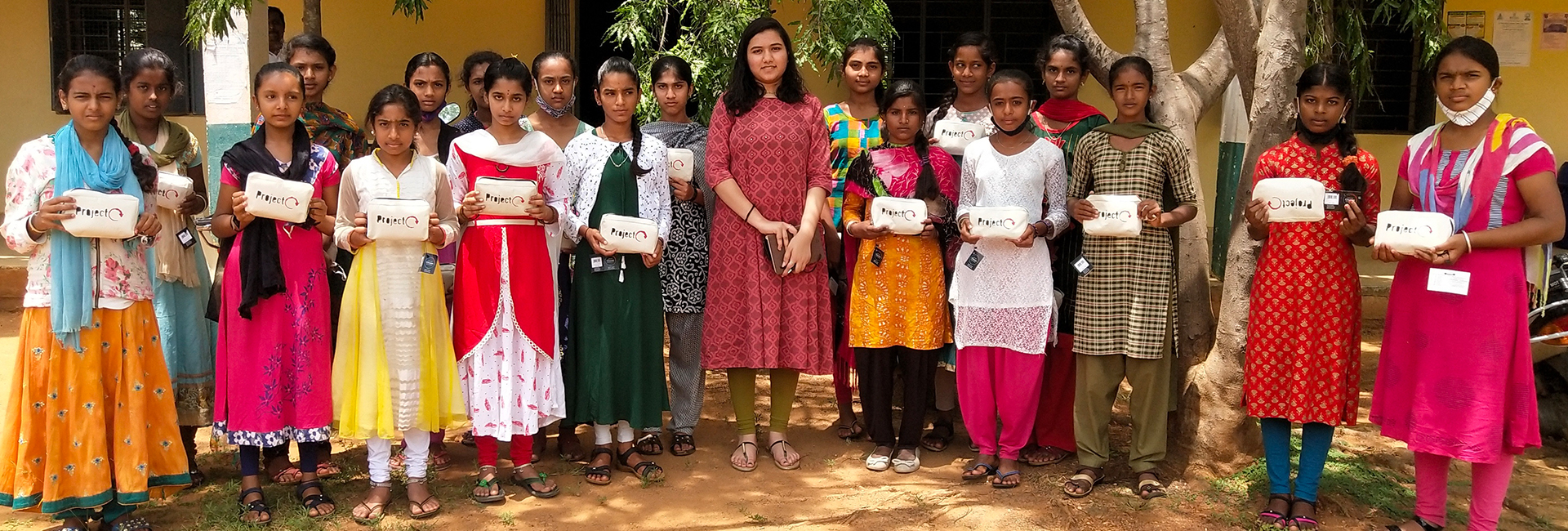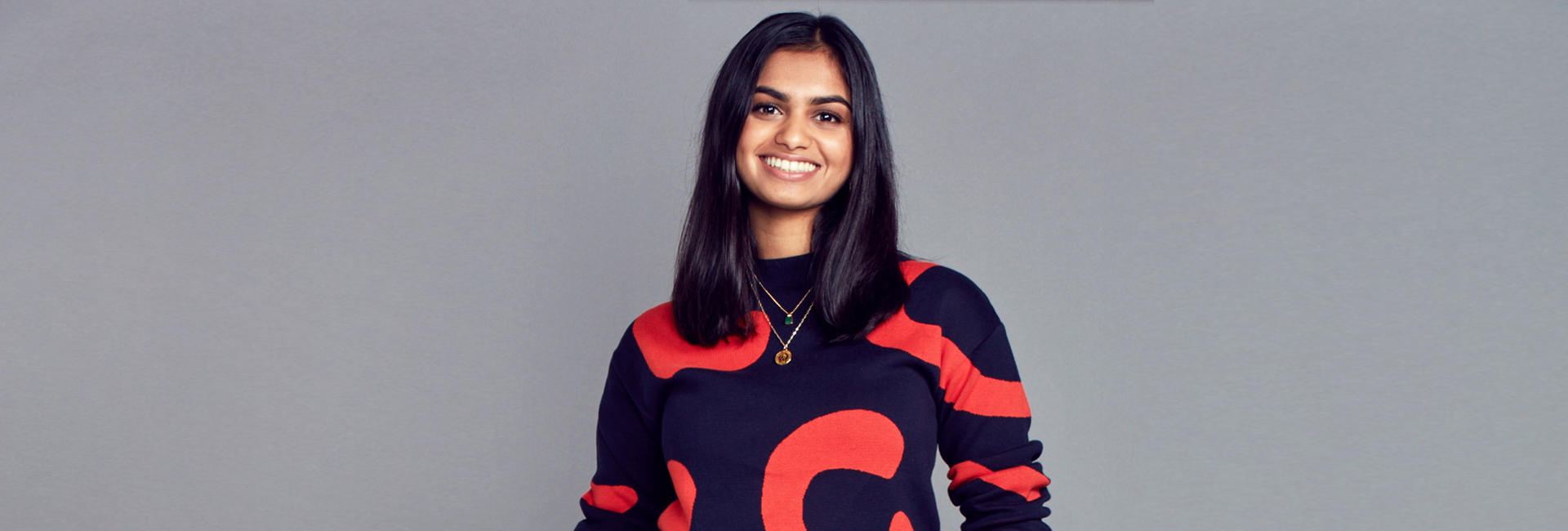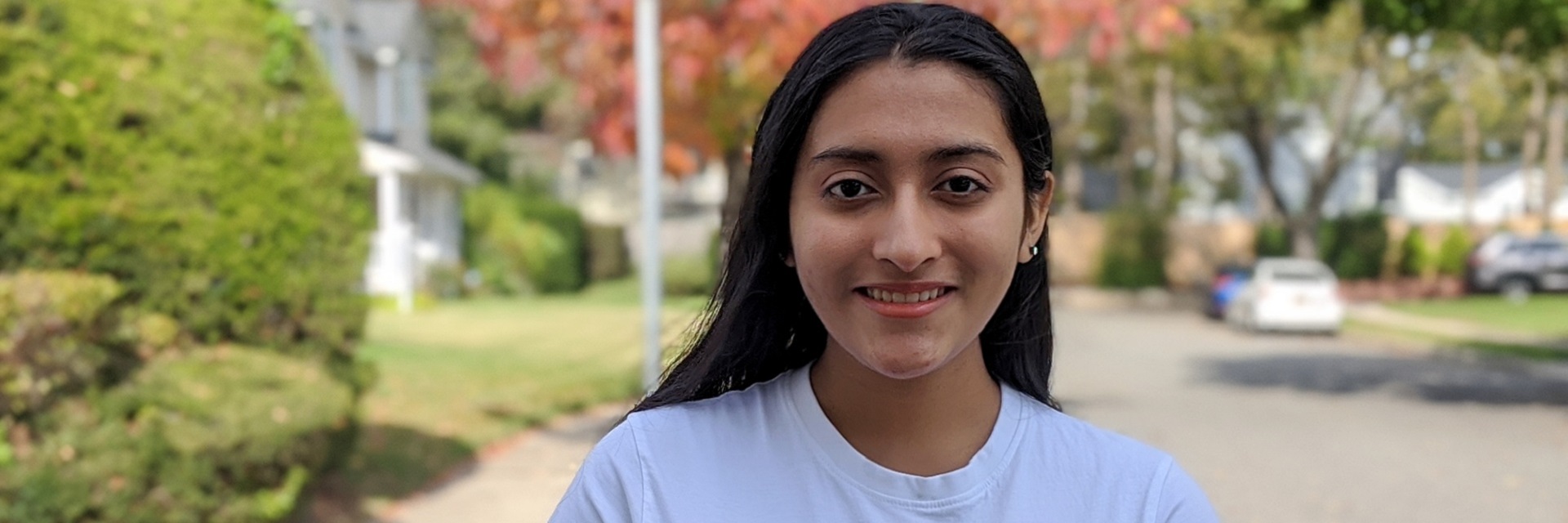(September 28, 2024) A newspaper article about Shuchi Scheme – a menstrual hygiene project by the Karnataka government that distributes free sanitary pads for school girls – coming to a halt owing to Covid-19 shifted something in the then 14-year-old Riddhi Javali. Being a teenager herself, the Bengaluru resident understood the problems that girls in villages would be facing due to this unforeseen circumstance. “Despite coming from a privileged background, kids like me were having an issue procuring the essential items. So with the Shuchi scheme coming to an abrupt stop, it was hard for me to even fathom the kind of problems the adolescent girls in villages would be facing, as discussing periods is still considered a taboo,” says changemaker Riddhi, who then decided to start Project Repeat – an effort to provide young girls in rural areas with safe and sustainable menstrual hygiene products like reusable cloth pads.
What began as an idea to help the adolescent school girls in nearby villages of Bengaluru has now transformed into a movement that is spread across the state of Karnataka, and has so far impacted 400 government school girls in rural areas. “It has been quite a journey for me,” the DPS Bangalore South student tells Global Indian, adding, “Knowing that my efforts are helping the girls, gives me immense satisfaction and reaffirms that I am on the right path.”
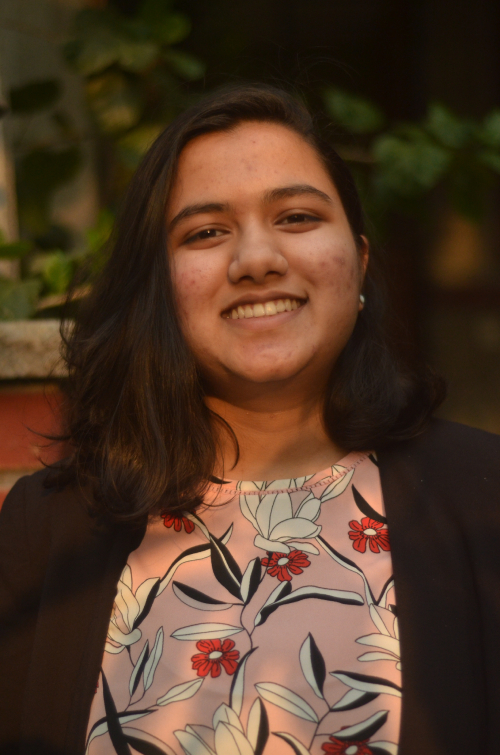
Riddhi Javali is the founder of Project Repeat
A newspaper clipping that changed it all
A newspaper article stating around 19.29 lakh government school girls were awaiting sanitary pads after the Shuchi scheme was stalled, made Riddhi jump into action. The closure of schools due to Covid-19 deprived lakhs of young girls of sanitary napkins and Riddhi was keen to find a solution. Understanding that the disposable sanitary pads provided by the government harm the environment, she knew that sustainable menstrual products were the answer. She had three options – biodegradable pads, menstrual cups, or cloth pads – to choose from to begin the journey. She zeroed in on cloth pads as they are cost-efficient, eco-friendly, and could be washed and reused for up to five years.
“Initially, the plan was to employ rural women who could make cloth pads by procuring waste cloth from cloth factories. However, the proposal was busted when I was told that a medical grade cloth was needed for the process,” reveals the 19-year-old who had to think on her feet, and immediately started looking for NGOs who make cloth pad kids. That’s when she came across Giocare. “I ordered the first batch of 50 cloth pad kits from my pocket money and got in touch with Srinavasa V sir, the Block Resource Coordinator for Dept of School Education and Literacy Government of Karnataka. He took me to a government school in Harrohalli village on the outskirts of Bengaluru, my first visit,” adds Riddhi, who distributed cloth pads to the girls and educated them on menstruation.
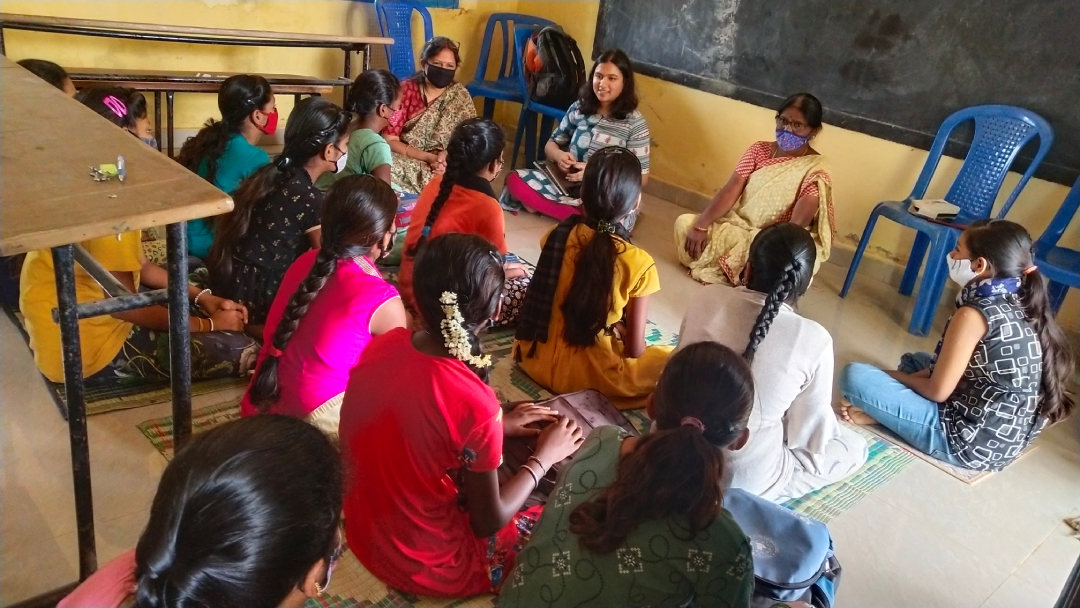

Riddhi interacting with girls at Karnataka Public School in Harohalli
In a country where menstruation is still a taboo topic and around 23 percent of girls drop out of school upon reaching puberty, getting the girls to open up was a task for Riddhi. “They were extremely shy. But with each school interaction, things started to get better and more streamlined. However, what struck me the most was their problems. Some told me that their school washrooms would get blocked girls would try to flush their pads, and that the government wouldn’t repair them for months,” says Riddhi, adding, “Others informed me that garbage collectors won’t pick up pads, and later the piles of pads were either burned or buried.”
A challenging project
The first few trips were an eye-opener for the teenager, who was keen to help. But funding was a challenge that kept prolonging the task at hand. “After spending my pocket money initially, I realised that this wasn’t a long-term solution. That’s when I started an online fundraiser, while it was family and friends who started contributing at first. But later, we did a tie-up with Ladies Cosmo Circle Bengaluru who funded us for one school,” says the changemaker, who believes that people are all for spreading awareness but still think twice before contributing money. “That’s the reason I continue with my campaigns so that the funds keep pouring in,” she adds, stating that she now has a team of volunteers who help spread awareness by constantly contributing to the website as well as their Instagram page.
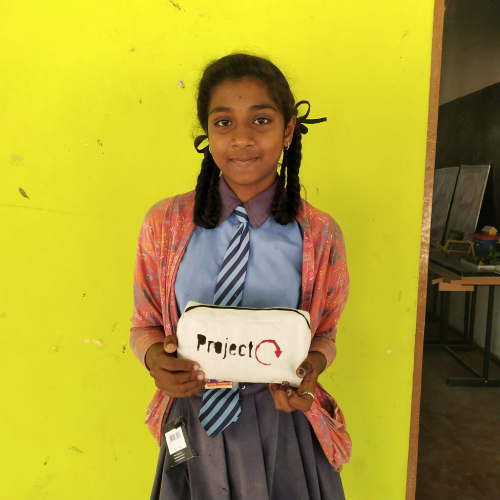

A girl student with cloth pad kit at Government High School, Attihalli
While Riddhi now has an army of volunteers who help her with Project Repeat, when she started, it was a one-man or in her case, one-woman show. “For two years, I was the only one who was visiting the schools, giving presentations, raising funds, and even updating the website. But soon the word spread, and like-minded people came forward to lend their support and skills,” adds the changemaker. However, it was an uphill task for Riddhi, who had to not only push herself out of her comfort zone but also had to fight the age bias. Recalling an incident, the changemaker says, “I remember once I had finished giving a presentation in one of the schools when one of the teachers told the students that it was my mom who was behind Project Repeat and doing everything. I had to correct her and say that I was the one spearheading this, while my parents were there for moral support.”
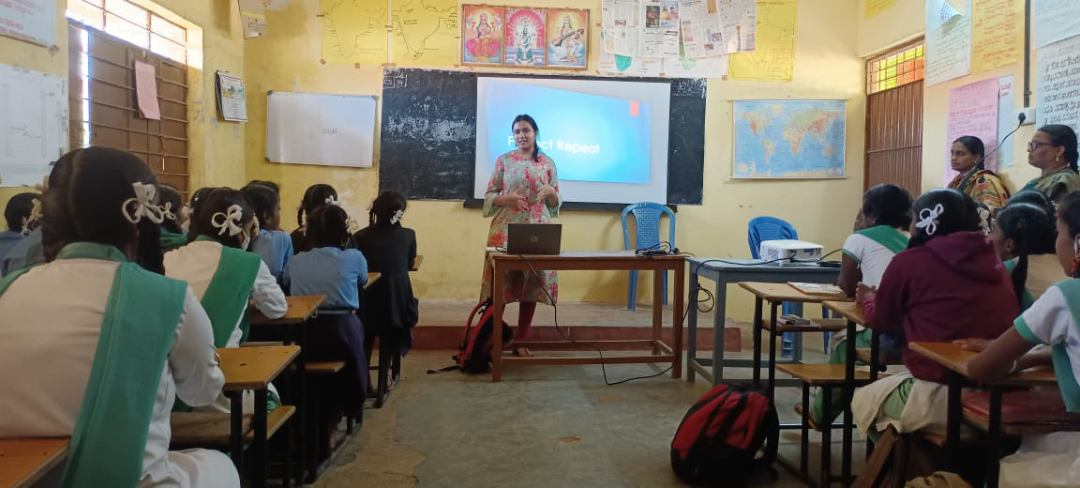

Riddhi Javali giving a presentation about menstrual hygiene at Government School Attihalli
Plans of expansion
However, these challenges have only made her more determined to work towards period poverty. After having impacted 9-10 government schools in Karnataka, she has now begun creating awareness about menstruation in her school as well. “We have started with Class 7 and Class 8 where boys and girls educate both boys and girls,” says the Class 11 student, who has plans of expanding Project Repeat to parts of Tamil Nadu. “Since my mother is from the state, I am comfortable with the language, and can reach out to school girls in rural areas.” However, her ultimate aim is for Project Repeat to reach every corner of India, and get more girls and young women out of period poverty. “As little girls, we are so ashamed of periods that not many speak about them openly. So it is important to change this mindset at a young age, as these are the formative years,” adds the teen changemaker.
Riddhi calls her software engineer parents the wind beneath her wings, always letting her “explore and discover things.” “From pushing me to do better to being present at every school visit despite their busy schedules, they have been huge pillars of support for me,” says a grateful Riddhi who loves unwinding by cooking, reading books, playing badminton, and learning Carnatic music.
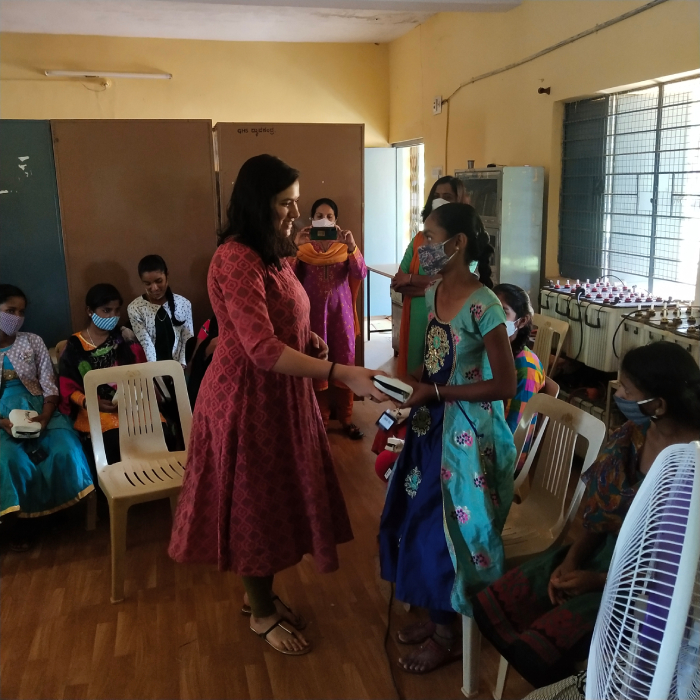

Riddhi Javali giving Project Repeat cloth pad kit to a government school girl
Riddhi, who began following her passion at the age of 14, advises young people to take the first step. “If you have a slight inkling about what you want to do, take that first step. At times, that’s the hardest part but once you do it, things start to fall in place,” the changemaker signs off, adding, “Always believe in yourself.”

